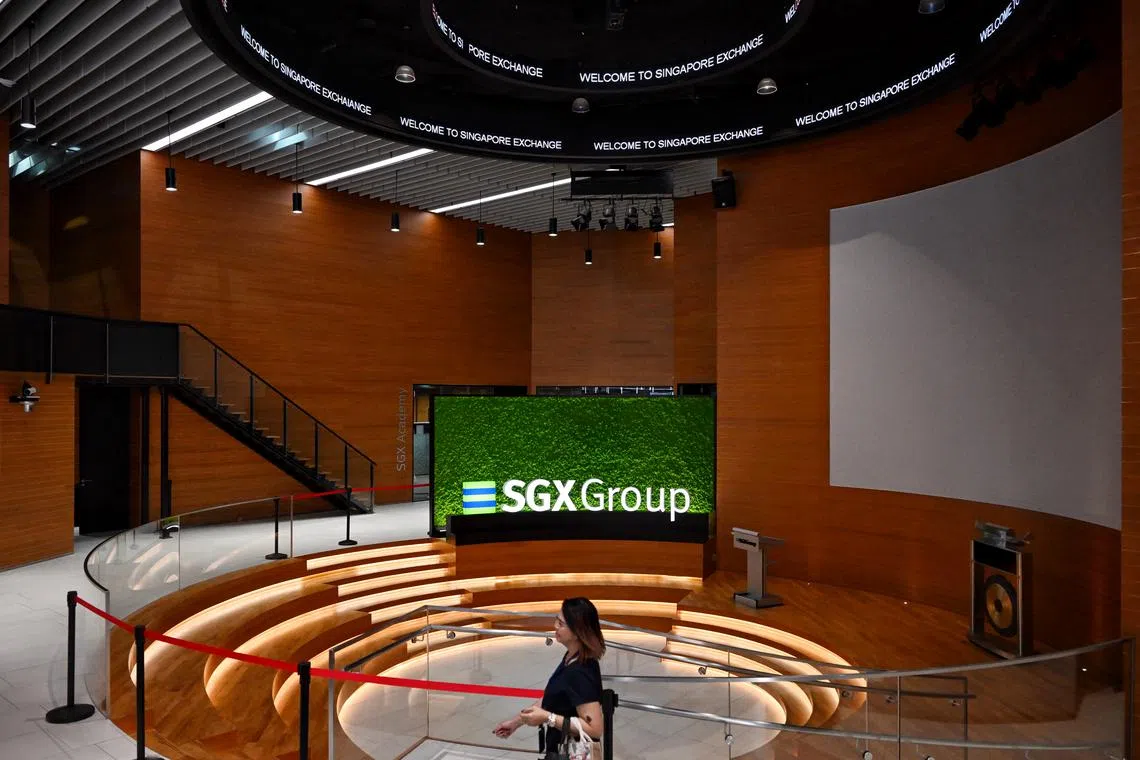As pillar of Singapore financial ecosystem, SGX needs help to build investor demand: Chairman
Sign up now: Get ST's newsletters delivered to your inbox

SGX chairman Koh Boon Hwee’s remarks come after a review group was set up by MAS to strengthen the development of the local equities market.
ST PHOTO: KUA CHEE SIONG
Follow topic:
A vibrant and liquid stock market is vital to securing Singapore’s continued success as a global financial centre, and it is “evident” that this business needs more work, the chairman of the local bourse said.
Beyond generating profits for the Singapore Exchange (SGX), the purpose of the local stock market is to serve as a trusted and efficient marketplace for growing enterprises to readily raise capital and advance further.
Should it fail to enable venture capital and private equity to exit their investments and recycle the capital deployed, the supply of such capital will eventually dry up and threaten the start-up ecosystem that Singapore has built and nurtured over the past decades.
That was the gist of SGX chairman Koh Boon Hwee’s letter to shareholders in the exchange’s latest annual report for the year ended June 30.
It was the first time in 14 years that the chairman had issued a separate letter from the chief executive in SGX’s annual report.
“Some may argue that the stock market is only one aspect of our financial ecosystem, but it is more like a pillar. And we should recognise that if this one pillar were to falter, the whole is put at risk,” Mr Koh wrote.
“It is evident that our cash equities business needs more work.”
Mr Koh highlighted the importance of having a liquid stock market that is supported by a strong supply of companies wanting to list, and corresponding demand from investors, including domestic institutional investors.
“We must learn to accept market volatility and the occasional challenges that come with it. With volatility comes active trading. And active trading in turn enhances liquidity. A highly liquid market drives valuation, paving the way for initial public offerings.”
Mr Koh added: “These things are all interlinked. But to achieve this, we require greater diversity in the demand side of the equation.”
He noted that previous attempts at addressing the issues of the stock market have been incremental and focused on the supply side, and that more emphasis should be given to the demand side of the marketplace.
“This includes fostering an institutional asset-management ecosystem that includes the local stock market.”
Even as efforts are being made to draw more investor demand, Mr Koh cautioned that “winning and losing are par for the course in every marketplace, whether it is listed shares, over-the-counter derivatives or cryptocurrencies”.
While SGX will always have zero tolerance for fraud and will uphold Singapore’s hallmarks of trust and good governance, investors must actively own their investment decisions and outcomes.
“Unless fraud is involved, the same tolerance for losses in foreign-listed shares or cryptocurrencies should apply domestically,” he said.
His remarks come after a review group
In his letter to shareholders, SGX chief executive Loh Boon Chye noted that overall volumes in the cash equities business were “subdued”, and that “more needs to be done to structurally enhance liquidity and listings”.
He added that “a more holistic approach with efforts from all stakeholders is required for real change to take place”.

